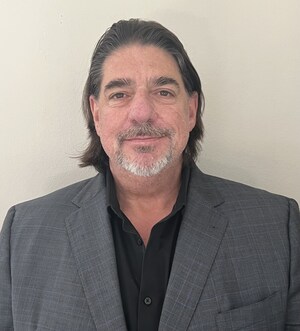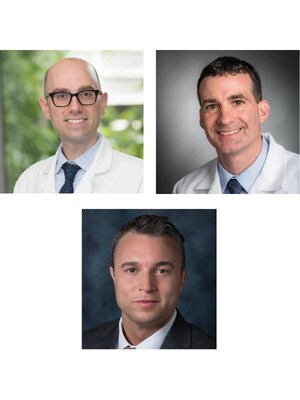NEW YORK, Feb. 21, 2024 /PRNewswire/ -- The DeGregorio Family Foundation with the support of the Esophageal Cancer Awareness Association has awarded $75,000 to R. Taylor Ripley, MD, Associate Professor at the Michael E. DeBakey Department of Surgery at Baylor College of Medicine and a thoracic surgeon. The Grant is named in memory of Michael F. Price, the noted value investor and philanthropist, who was an early supporter of the Foundation. Dr. Ripley, along with Yuan Xu, MD, PhD, Instructor at Baylor College of Medicine, will continue to evaluate whether targeting the portion of the tumor cell responsible for energy production will improve treatment responses in esophageal adenocarcinoma. This funding is in addition to $75,000 awarded in 2023 and could increase, depending on results.
Normally, the tumor cell 'energy center', called the mitochondria, protect the tumor cell from treatment with either chemotherapy or immunotherapy. Dr. Ripley and Dr. Xu have reported that esophageal tumors resisted cancer cell death through a protein on the mitochondria called Myeloid Leukemia Cell-1 (McI-1). This protein increases in tumor mitochondria to further resist treatment so that treatment does not work well. They are evaluating whether targeting McI-1 will improve the effects of standard treatments. Importantly, Mcl-1 is part of a 'pathway' that may block treatment responses. Dr. Ripley's team found that certain proteins in that pathway are responsible for Mcl-1 production. Therefore, if these newer proteins are targeted, then Mcl-1 will not be present to prevent tumor cells from dying during treatment.
To test the hypothesis that targeting Mcl-1 or its regulatory proteins will improve treatment response, Dr. Ripley and his team have established two models. In the first model, they generate 'patient-derived explants' in which a tumor is directly removed during surgery. This approach enables evaluation within three days, which is important to decide about treatment for each patient. In the second model, they developed 'patient-derived xenografts' in which tumors from patients were implanted in mice, which allows longer-term treatment evaluation. These mice are treated with drugs that block Mcl-1 in combination with chemotherapy. Together, these two models will confirm the new approach of targeting the mitochondria to help patients respond to therapy.
In 2020, gastric and esophageal cancers combined killed over 1.3 million people worldwide. Patients continue to face poor prognoses following gastroesophageal cancer diagnoses due to their chemo-resistant behavior and ability to metastasize.
"The support of the DeGregorio Family Foundation is critical to the success of our research; we very much appreciate it," said Dr. Ripley.
"Esophageal adenocarcinoma has been growing exponentially in the last four decades in the U.S. and is the most common subtype of esophageal cancer found here," concluded Lynn DeGregorio, President and Founder. "We are proud of Dr. Ripley and his team for their pioneering research."
The DeGregorio Family Foundation, founded in 2006 after a 10th member of the DeGregorio family died of stomach cancer, has raised more than $8 million to fund innovative research to cure gastric and esophageal cancers. It is the only public foundation focused on funding research grants for both of these cancers.
For high-res. images: https://spaces.hightail.com/space/FBH5tea5l6
SOURCE DeGregorio Family Foundation

WANT YOUR COMPANY'S NEWS FEATURED ON PRNEWSWIRE.COM?
Newsrooms &
Influencers
Digital Media
Outlets
Journalists
Opted In






Share this article